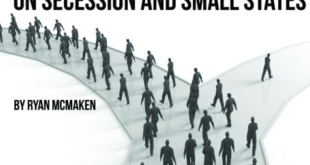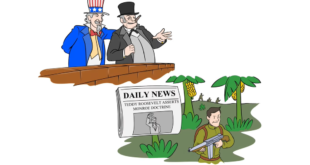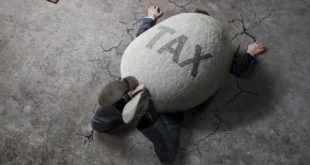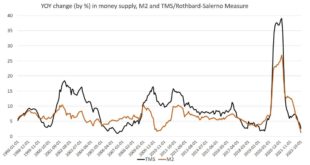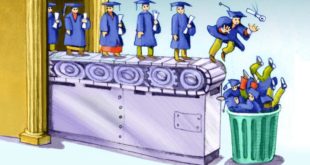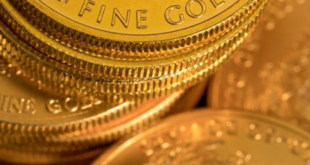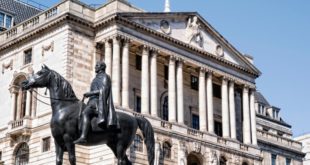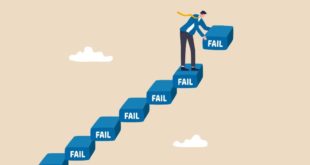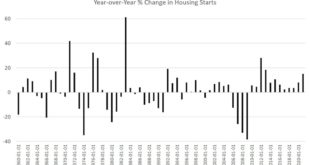The international system we live in today is a system composed of numerous states. There are, in fact, about two hundred of them, most of which exercise a substantial amount of autonomy and sovereignty. They are functionally independent states. Moreover, the number of sovereign states in the world has nearly tripled since 1945. Because of this, the international order has become much more decentralized over the past eighty years, and this is largely due to the...
Read More »Who Really Owns Big Digital Tech?
By now it should be perfectly clear that the most prominent Big Digital companies are not strictly private, for-profit companies. As I argued in Google Archipelago, they are also state apparatuses, or governmentalities, undertaking state functions, including censorship, propaganda, and surveillance. Katherine Boyle, “a general partner at Andreessen Horowitz where she invests in companies that promote American dynamism, including national security, aerospace and...
Read More »Who Pays Wealth Tax: The Rich or the Poor?
The Spanish government’s announcement that it plans to introduce a new “solidarity tax” on the wealth of those who possess over €3 million has again brought to the fore the debate about taxes levied on wealth and capital. The issue is not merely that the announcement is highly politicized in what is already, de facto, a preelection period, nor that it could disrupt the fiscal autonomy of Madrid, Andalusia, and Galicia. (Let us recall that these regions comprise...
Read More »Money-Supply Growth in October Fell to a 39-Month Low. A Recession Is Now Almost Guaranteed.
Money supply growth fell again in October, dropping to a 39-month low. October’s drop continues a steep downward trend from the unprecedented highs experienced during the thirteen months between April 2020 and April 2021. During that period, money supply growth in the United States often climbed above 35 percent year over year, well above even the “high” levels experienced from 2009 to 2013. During October 2022, year-over-year (YOY) growth in the money supply was...
Read More »College Loans and Hazlitt’s Lesson: Ignoring the Larger Picture
As of 2022 the national student debt reached $1.6 trillion with the average student loan debt at about $28,000. Many former college students are discovering it is difficult to pay back such a large amount of debt. This is especially true of students that graduate with fruitless degrees like sociology, for example. These majors are only good as prerequisites to a master’s degree. Most graduates find themselves working jobs that are completely unrelated to their...
Read More »The Great Gold Robbery of 1933
[Originally published August 13, 2008] It’s been 75 years since the federal government, on the spurious grounds of fighting the Great Depression, ordered the confiscation of all monetary gold from Americans, permitting trivial amounts for ornamental or industrial use. This happens to be one of the episodes Kevin Gutzman and I describe in detail in our new book, Who Killed the Constitution? The Fate of American Liberty from World War I to George W. Bush. From the...
Read More »The Near Collapse of the UK Pension Sector Exposes Failures by Financial Regulators
In an earlier article, I explained that the collapse in the long-dated UK government bond (or gilts) market on September 28 that followed the ill-fated Kwarteng “mini budget” of a few days earlier had exposed a hitherto underappreciated problem: UK pension schemes were massively exposed to changes in long-dated gilts rates. The week after the mini budget, the gilts market became very unsettled. To quote the Financial Times: Huge shifts in bond prices were leaving...
Read More »The REAL Solution to the Coming Economic Crisis
My previous article demonstrated how the free market solves a boom-bust crisis and is the only solution, its effectiveness depending upon the magnitude of the crisis and, more importantly, how much the government intervenes in response. The bigger the problem created by the Fed, the greater the crisis and the more government intervenes, and the slower the economy recovers. Here we consider how the market works most effectively, with the efficiency of the process...
Read More »Relying on Experts: A Proven Path to Failure
The warning lights on the dashboard of your car suddenly light up. You naturally take it to a mechanic to diagnose and repair. Cars are complex. You don’t have the time or accumulated expertise to figure out what is happening or to fix it. We rely on experts daily. In a complex world filled with busy people, it is impossible for any one person to know and do everything. So, we outsource. By doing so, we of course rely on others’ expertise, but we also subject...
Read More »The Housing Boom Is Already Over. Get Ready for Even Higher Prices.
As mortgage rates have risen this year, the demand for home purchases has fallen. That has spelled trouble for the home construction business. Homebuilder confidence dropped for the 10th straight month in October. The decline in builder sentiment reflects what economist Ian Shepherdson describes as “housing … in free fall. So far, most of the hit is in sales volumes, but prices are now falling too, and they have a long way to go.” The University of Michigan’s index...
Read More » Swiss Economicblogs.org
Swiss Economicblogs.org

